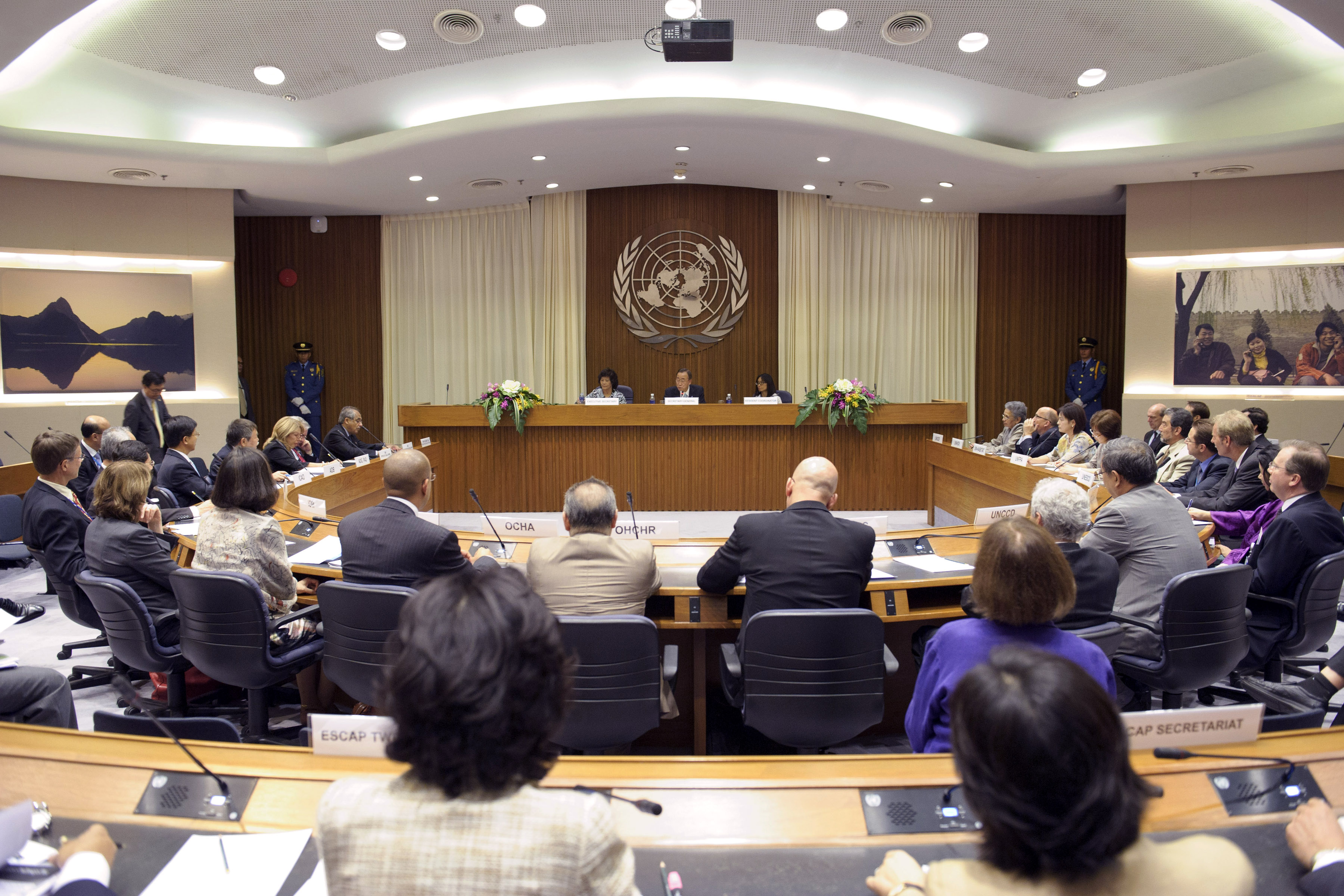
Meet ESCAP: Economic and Social Commission for Asia and the Pacific

“Our vision is to be the most comprehensive multilateral platform for promoting cooperation among member States to achieve inclusive and sustainable economic and social development in Asia and the Pacific.” – ESCAP Vision Statement
As with many United Nations bodies, ESCAP (formerly the Economic Commission for Asia and the Far East (ECAFE)) was founded in 1947 with the charge to assist in post-World War II economic reconstruction. Since 1974, ESCAP’s mandate has encompassed both economic and social issues within the region. ESCAP’s work is focused on many issues, including transportation, environmental protection, trade and energy.
Today, ESCAP is made up of 53 Member States and 9 Associate Members. The Associate Members are non-UN Member States, like the quasi-independent Macao and the Cook Islands. ESCAP is the largest of the five Economic and Social Council (ECOSOC) regional commissions. To address regional challenges, ESCAP runs projects and programs, , provides technical assistance and builds capacity in Member States. This effort is to provide a regional forum for cooperation in the pursuit of the 2030 Agenda for Sustainable Development and the Sustainable Development Goals.
Responding to natural disasters has been a major priority for ESCAP. In 2004, one of the worst disasters struck the Indian Ocean region when a 9.1 magnitude earthquake caused a massive tsunami. Over 230,000 lives were lost in 14 countries. Thanks to the leadership of Thailand in the wake of the tsunami, ESCAP established the Tsunami Regional Trust Fund in order to ensure that funds and resources are available in the event of a future disaster. Since its inception, the now named Trust Fund for Tsunami, Disaster and Climate Preparedness stands as an example of State cooperation. To improve response, State cooperation and communication is imperative in mobilizing resources and personnel. These efforts go beyond just responding to disasters, however. ESCAP’s efforts have also focused on ways to make the region more resilient, increasing the chance of withstanding the effects of a major natural disaster. The lessons that ESCAP has learned from preparing for disasters are also being used in other regions.
At the AMUN 2017 conference, ESCAP will be looking at two major topic areas: Enhancing regional economic cooperation and integration in Asia and the Pacific and Towards a sustainable, inclusive and resilient urban future for Asia and the Pacific. The Asia-Pacific region still faces serious trade barriers inside the region. Many of the small island developing states have high levels of poverty and lack the infrastructure to be fully integrated with the global economy. For more developed states, tariffs, regulations and other trade barriers remain a challenge. This comes as the Asia-Pacific deals with increased urbanization. The United Nations estimates that the Asia-Pacific region is home to more than two billion residents and that urban residents will represent 66 percent of the world’s population by the year 2050; for the first time in history more people are living in cities than in rural areas.
ESCAP has supported increased economic stability among Member States. From sustainable business development to trade and investment agreements, ESCAP acts as a facilitator for trade negotiations, idea sharing and business development within the region. As Member States grow their economies, urbanization occurs almost simultaneously. ESCAP recognizes this relationship and sees it as an opportunity to address both issues through careful planning and partnerships among Member States. Despite the diversity of priorities that its Members have, ESCAP will act as a unifying forum for Members to grow their own interests in conjunction with the needs of the region.
Keep Up With The Accords
More to read
The AMUN Accords is a premier resource for fact-based Model United Nations simulations. We are always looking for new contributors. Want to write for the AMUN Accords? Check out out the submission guidelines and then get in touch!




